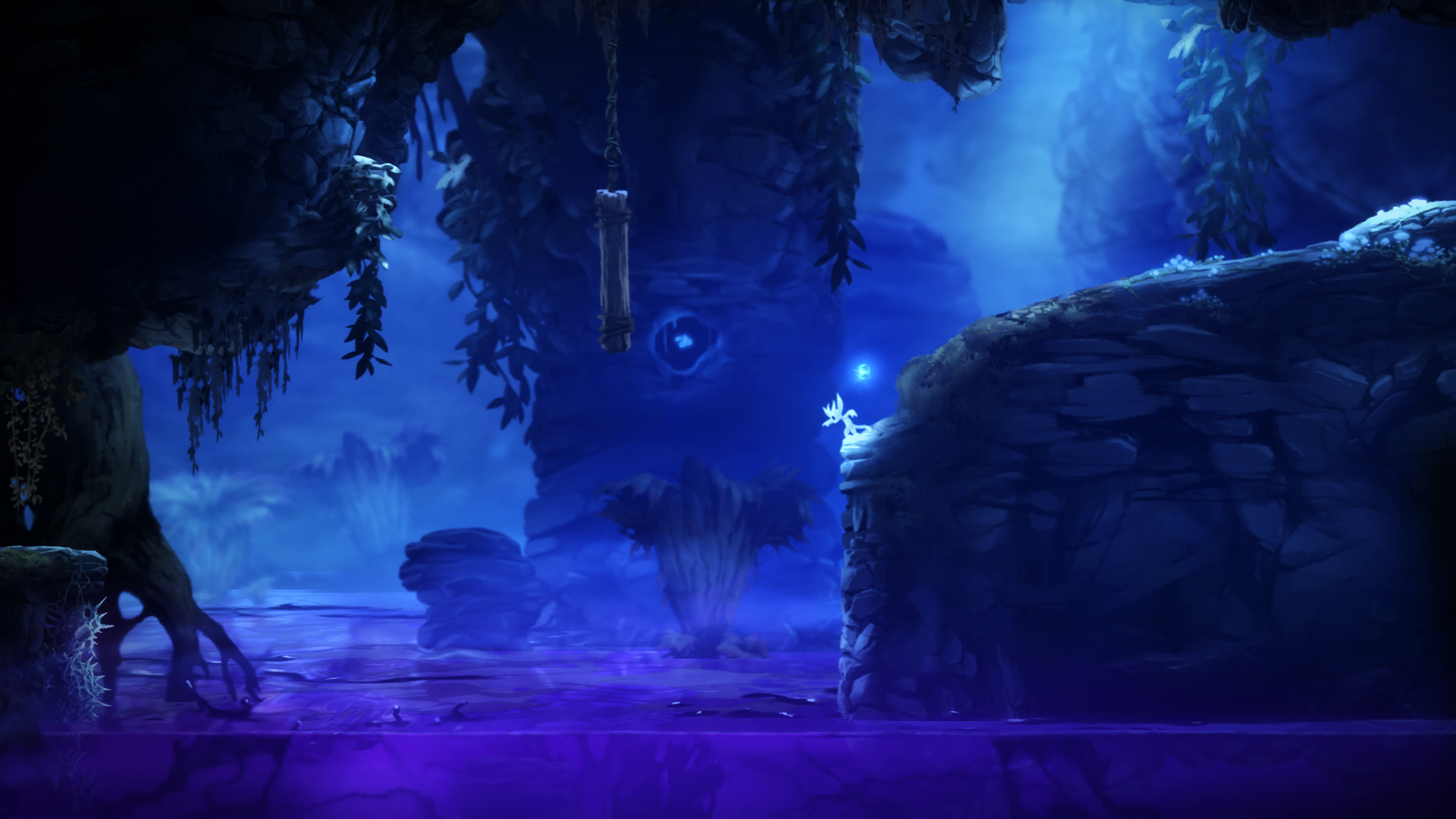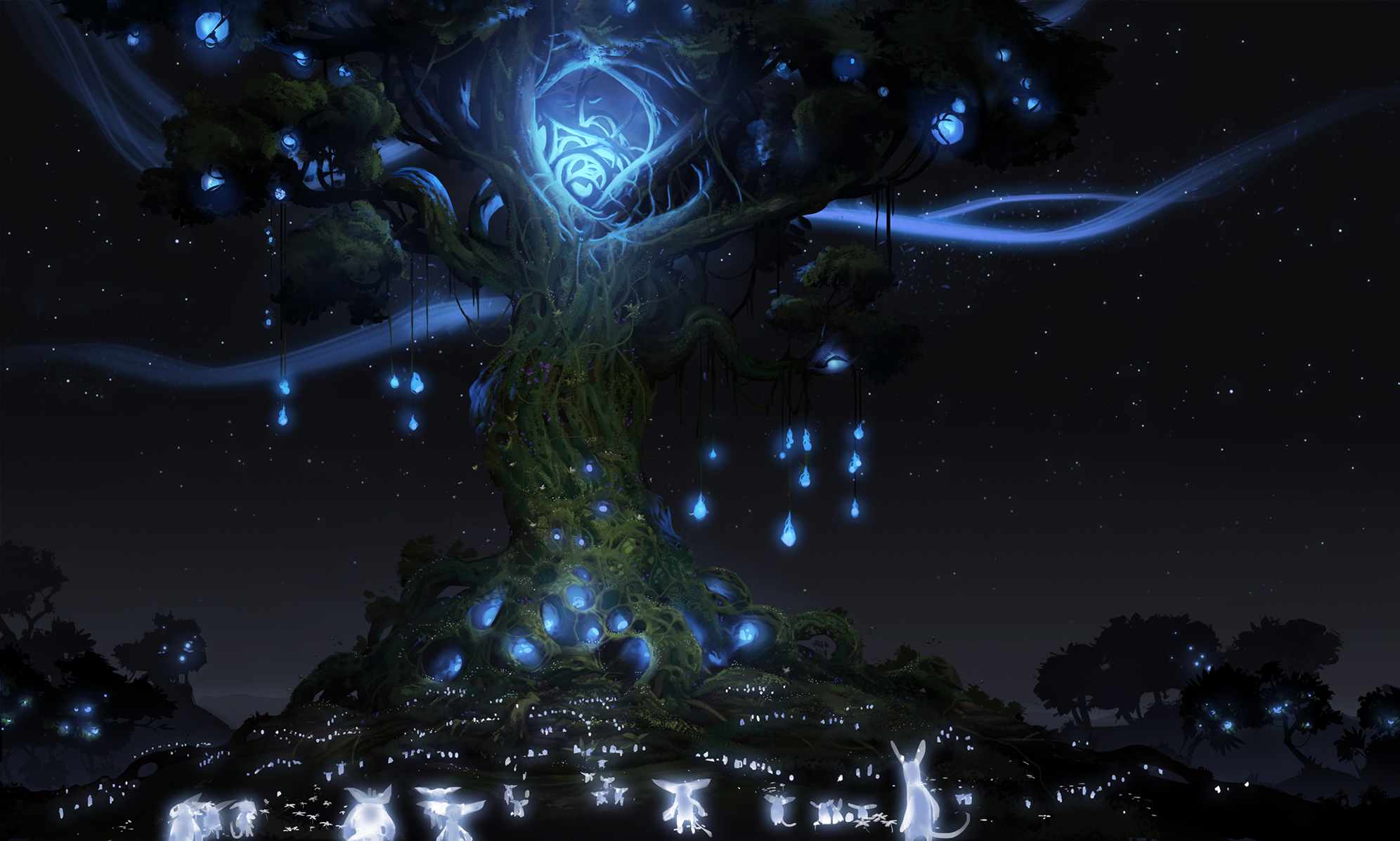Bastion
LQ: 9.15
Recommended Age: 10+
Skills Used: Planning, Working Memory, Mathematics, Reading
Ori and the Blind Forest is a puzzle platformer for PC and Xbox One that follows the journey of Ori, a “guardian spirit,” as he seeks to revive the forest of Nibel after it is ravaged by a catastrophic event that kills everyone he knows, including his adoptive parent. Ori must find and combine the lights of Water, Wind, and Warmth in order to restore balance to Nibel and rid it of negative forces. Beautiful, atmospheric, and immersive, the rich painted look and haunting soundtrack of Ori and the Blind Forest (which won a Video Game Award for art direction) will spark imaginations. The game requires some reading skills and the puzzles and platforming are challenging, but despite its somber storyline it features only very mild cartoon violence, making it ideal for children as young as 8.
 Adapting and adjusting to changing conditions and expectations.
Adapting and adjusting to changing conditions and expectations.
One of the thinking skills children will use most when playing Ori and the Blind Forest is flexibility. Ori is a guardian spirit adjusting to life without his community and navigating a forest that is no longer hospitable, and players will share this learning curve. Exploration is nonlinear, and places that seem accessible won't always be and places that are accessible won't necessarily be easy to travel through. There are times when a player will need to think differently about a problem before they re-attempt passage, or just go somewhere else and come back when a new ability is gained. An important side effect of flexibility is resilience, which can make a big difference when it comes to success, not just in a video game, but in life in general. Flexibility is what allows kids to move past feelings of frustration and persevere when the going gets tough, change strategies, and try again.
Understanding our own actions, thoughts and feelings and empathizing with others.
 Because of the tricky nature of a puzzle-platformer like Ori and the Blind Forest, self-awareness is key for getting through the game, and it works in tandem with flexibility. Knowing Ori’s limitations and paying attention to hazards, enemies, and the health bar will make gameplay far less frustrating. Self-awareness drives initial assessment as well as reflection. When obstacles are encountered, self-awareness is what will tell a player when a hazard or enemy is beyond Ori’s current ability or if there might be an alternative solution. When the problem has passed, self-awareness helps them think about whether their method was efficient and effective or if they should try another way next time. But this thinking skill isn't only about metacognition; it also involves empathy. Ori’s personal journey is good food for thought and conversation about differing views on love, loss, grief, healing, and hope.
Because of the tricky nature of a puzzle-platformer like Ori and the Blind Forest, self-awareness is key for getting through the game, and it works in tandem with flexibility. Knowing Ori’s limitations and paying attention to hazards, enemies, and the health bar will make gameplay far less frustrating. Self-awareness drives initial assessment as well as reflection. When obstacles are encountered, self-awareness is what will tell a player when a hazard or enemy is beyond Ori’s current ability or if there might be an alternative solution. When the problem has passed, self-awareness helps them think about whether their method was efficient and effective or if they should try another way next time. But this thinking skill isn't only about metacognition; it also involves empathy. Ori’s personal journey is good food for thought and conversation about differing views on love, loss, grief, healing, and hope.
All membership plans come with full access to our entire suite of tools learning guides, and resources. Here are a few of the ones we think you’ll like the most: